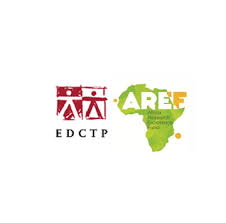Education is a powerful tool that has the potential to transform lives and communities. However, the pursuit of higher education often comes with financial challenges that can deter many deserving individuals from achieving their academic dreams.
Endowment Scholarship
In response to this issue, endowment scholarships have emerged as a valuable resource, offering financial support to students and creating a lasting impact on their educational journeys.
Definition of Endowment Scholarships
An endowment scholarship is a financial aid program that is sustained by a permanent fund, or endowment, established by donors or institutions. Unlike traditional scholarships, which may be one-time awards, endowment scholarships are designed to provide perpetual support by investing the principal funds and using the generated income to fund scholarships indefinitely. This sustainable model ensures a continuous stream of financial aid for generations to come.
The Mechanics of Endowment Scholarships
Endowment scholarships typically begin with a generous donation from individuals, corporations, or philanthropic organizations. The donated funds are then invested, with the goal of preserving the principal amount while generating returns. The generated income is used to fund scholarships, allowing the endowment to grow over time and support an increasing number of students.
Benefits of Endowment Scholarships
- Long-Term Impact: Endowment scholarships have a lasting impact on education. By providing a perpetual source of funding, these scholarships ensure that students can receive financial support year after year, creating a sustainable cycle of educational assistance.
- Access to Education: One of the primary benefits of endowment scholarships is their ability to increase access to education. Students who might otherwise be unable to afford higher education can pursue their academic goals without the burden of overwhelming financial constraints.
- Merit-Based and Need-Based Support: Endowment scholarships can be tailored to address various needs, including merit-based achievements or financial needs. This flexibility allows institutions to target specific groups of students, ensuring that scholarships are awarded to those who can benefit the most.
- Diversification of Educational Opportunities: Endowment scholarships contribute to the diversification of educational opportunities by supporting students from different backgrounds, disciplines, and regions. This helps create a richer and more inclusive academic environment.
- Community Engagement: Establishing endowment scholarships often involves collaboration between educational institutions and the community. This fosters a sense of shared responsibility for education, encouraging local businesses and individuals to invest in the future of their community.
Challenges and Considerations
While endowment scholarships serve as a beacon of hope for many students, it\’s important to acknowledge the challenges associated with their establishment and management. These challenges can impact the sustainability and effectiveness of the scholarship program.
- Financial Commitment: The creation of an endowment scholarship demands a substantial financial commitment from donors or institutions. Establishing a sizable fund that can generate sufficient returns to sustain scholarships in the long term requires careful planning and a dedication to supporting education.
- Sound Investment Strategies: The success of an endowment scholarship hinges on the effectiveness of its investment strategies. Endowments are typically invested in a diverse portfolio of assets to ensure stable and reliable returns. However, the unpredictability of financial markets poses a challenge, as poor investment decisions or economic downturns can negatively impact the fund\’s growth and, consequently, the availability of funds for scholarships.
- Economic Fluctuations: Endowments are subject to economic fluctuations, and the performance of investment portfolios can be influenced by factors such as interest rates, inflation, and global economic conditions. A downturn in financial markets can lead to reduced returns on investments, potentially affecting the amount of income available to fund scholarships.
- Balancing Sustainability with Inflation: Striking a balance between maintaining the sustainability of the endowment and keeping pace with inflation is a persistent challenge. Inflation erodes the purchasing power of the endowment\’s returns over time, making it essential to carefully manage investments to ensure that the fund continues to grow and meet the increasing financial demands of education.
- Donor Intent and Restrictions: Donors often have specific intentions or restrictions regarding how their contributions should be utilized. Balancing these donor restrictions with the evolving needs of educational institutions can be challenging, requiring effective communication and collaboration between donors, institutions, and scholarship administrators.
- Long-Term Stewardship: Endowment scholarships are designed for long-term impact, and their success depends on responsible stewardship. This includes not only making prudent investment decisions but also adapting the scholarship program to evolving educational landscapes and ensuring that the endowment remains aligned with its original purpose.
Addressing these challenges requires a collaborative effort from donors, educational institutions, and financial experts. While the hurdles are significant, the enduring impact of endowment scholarships on education underscores their importance as a vehicle for creating lasting opportunities and breaking down financial barriers for generations of students. Despite the challenges, the commitment to providing sustainable financial support for education through endowment scholarships remains a crucial investment in the future.
Conclusion
Endowment scholarships represent a powerful means of investing in the future of education. By combining financial generosity with strategic investment, these scholarships create a sustainable platform for supporting students in their pursuit of knowledge. As we navigate the complexities of the modern world, endowment scholarships stand as beacons of hope, ensuring that education remains a beacon of opportunity for all.
Frequently Asked Questions
- What is an endowment scholarship? An endowment scholarship is a financial award established by donors or institutions to provide ongoing support for students pursuing higher education. Unlike typical scholarships that are funded annually, endowment scholarships are funded through an initial donation, and the returns on the investment generate funds for perpetual awarding.
- How do endowment scholarships differ from other scholarships? Endowment scholarships differ in their sustainability. While regular scholarships might have a finite funding period, endowment scholarships are designed to exist indefinitely. They operate by investing the initial donation and using the returns on that investment to fund scholarships in perpetuity, thereby creating a lasting impact on students\’ education.
- Who can benefit from endowment scholarships? Endowment scholarships typically cater to a wide range of students based on various criteria set by the donor or institution. These criteria might include academic merit, financial need, specific fields of study, or community involvement. Eligibility varies from one endowment to another, offering opportunities for undergraduates, graduates, or even specific demographics such as minorities or students from particular regions.






